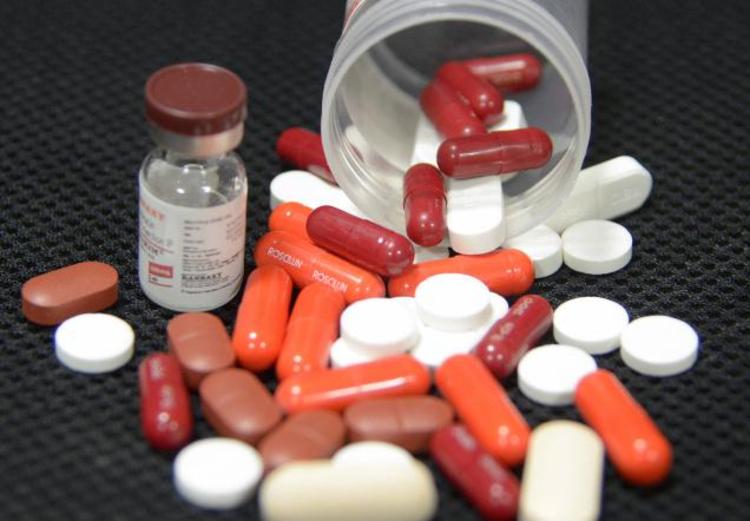
The Sunday Mail

Shamiso Yikoniko
Sometimes all you have is hope.
That was so for Linda Pasi (not her real name) as she watched her four-year-old daughter’s health deteriorate with each passing day.
It began like a simple cough and Ms Pasi thought that her daughter had caught a cold. She sought medical attention at Epworth Clinic but the cough did not go away.
She coughed. And coughed. And coughed. Until a whole year had passed and her daughter was wasting away.
“In January 2012, Tashinga was prescribed an antibiotic for her cough and I administered it until it was finished. Surprisingly the cough didn’t go away.
“After two months, I went back to the clinic and she was prescribed another antibiotic and a cough syrup but still the cough didn’t go away.
“She actually got worse because now she was always vomiting whenever I fed her. I went back to the clinic and I was transferred to Parirenyatwa Group of Hospitals where a series of tests were done and was told Tashie had TB.”
Though, she was grateful that her daughter was finally getting help, little did she know that it was the beginning a new journey of yet another gruelling experience.
Administering TB drugs is not a simple matter of popping pills in the mouth and washing them down with water.
She had to cut the pills to as close to the required dosage — and even then her daughter found it difficult to swallow them.
“She didn’t want to swallow them because they were bitter and sometimes I would mix them with a drink but it still didn’t work,” Ms Pasi narrated.
“After five months of trying to save my daughter’s life with the medication, she died.”
Health practitioners say TB is notoriously difficult to detect in children. And usually by the time it is diagnosed, it would have caused irreparable damage.
The fight against paediatric TB got its edge when the World Health Organisation unveiled strawberry and raspberry-flavoured medications customised for children at a conference on lung health in Cape Town, South Africa last December.
This is the first time that a fixed dose has been customised for children who were so far given regular TB pills that had to be cut to size at home, or crushed and mixed with food or a drink.
The roll out of the new medicines is expected soon and any country can access it through a global TB drug facility.
“If we are to end the TB epidemic by 2030, we must bring children with TB out of the shadows and ensure they are properly diagnosed, treated and cured,” said Dr Mario Raviglione, WHO director of the Global TB programme at the Cape Town launch.
“The new fixed-dose formulations for children will offer hope for the 400 children who needlessly die of TB each day worldwide. Urgent action is needed to ensure these medicines reach those in need and rapidly improve child survival from TB.”
Paediatric TB constitutes 10 percent of all TB notifications in Zimbabwe, and according to the Health and Child Care Ministry, there were about 3 500 such cases in 2014.
Health Ministry Aids and TB unit deputy director Dr Charles Sandy said the country’s monitoring and evaluation system had not been dis-aggregating outcomes of treatment by age, hence data for children with TB was inconclusive.
A paediatrician who spoke on anonymity said, “Syrups will no doubt make it easier for mothers and guardians who had to struggle to crush tablets, which are very bitter, and administer them to their children. The flavoured medicines will increase compliance among children.”
Paediatric dosages for TB took centre stage in 2010 when health practitioners across the globe highlighted that children often did not recover because they were not being given consistent or fixed doses.
The new paediatric syrup is a fixed dose combination of the three most commonly used drugs to treat drug-sensitive TB — rifampicin, isoniazid and pyrazinamide.
“These are not new drugs, but rather improved formulations that are dissolvable and flavoured so that they are simple for providers and parents to administer and easy for children to take,” read a media release by the TB Alliance.
“However, the formulations are in the process of being pre-qualified by WHO.”
“Splitting TB pills, gives the medication a bitter taste and usually results in imprecise dosing, making the treatment journey even more difficult for children and their families,” it added.
The new medicines were developed with the support of TB Alliance, a non-profit organisation working towards reducing TB cases to zero by 2030.
WHO estimates TB kills at least 400 children across the world daily, while one million children contract it every year. Most children don’t have access to TB medicines in the proper doses or formulations.
TB is spread by bacteria when someone with untreated TB coughs or sneezes. Children who survive can become blind, deaf, paralysed or mentally disabled.



